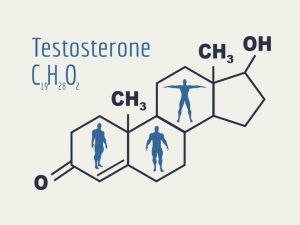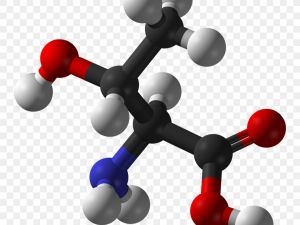Testosterone in the aging male: You’re probably not gonna like this

Multiple choice question: What’s the one thing every male starts to lose after the age of 30?
- His car keys
- His sense of humor
- His mind
- His testosterone
- All of the above
Ok, so in some of us it’s option 5, but for all of us, it’s going to be a decrease in testosterone production (for the sake of avoiding typing fatigue, we’ll just call it “TP” from here). In cases where production has dropped significantly, men can experience symptoms such as fatigue, muscle weakness, increased body fat, sleep issues, and most notably, a lack of sex drive or even erectile dysfunction. Many of the symptoms of low testosterone have historically been attributed to coronary artery disease, depression, or diabetes. It is now recognized that many of these conditions may have other causes.
In general, the normal range of testosterone in males is about 270 to 1070 ng/dL with an average level of 679 ng/dL (this can depend on the lab conducting the testing). There are condtions that can affect these levels (kidney/liver disease, obesity, diabetes), as well as some medications, and of course, aging. A gradual decline in levels is to be expected as one gets older.
Dietary modifications can help to increase or stabilize your levels:
- Carbs – not from grains, but 80% from root vegetables (carrots, yams, turnips, etc.)
- Protein – no more than 30% of your total caloric intake
- Fiber – In one study, male subjects were fed either a high fat, low fiber diet, or a low fat, high fiber diet. At the end of the study, the low fat/high fiber group not only showed 13% lower testosterone levels, but also had 12% – 28% higher estrogen levels¹.
- Fat is the dietary component that will really boost your testosterone levels, especially if you’re 40 and over. The fat, though, should come from saturated and monounsaturated fats. Olive oil and coconut oil have been shown to help the Leydig cells in the testicles to absorb more cholesterol2. They also increase the enzyme activity that produces testosterone. Throw a few avocados in there for good measure.
There are some nutrients that are also required for maintaining TP. Deficiencies in Vitamin A, Vitamin D, and Zinc will have adverse effects. Other supplements often cited as increasing TP include:
- D-Aspartic Acid
- Tribulus Terrestris³
- Fenugreek (500mg/day)
- Ginger (which has many other health benefits)
- DHEA (50-100mg/day)
- Ashwaganda (also good for stress management)
It is worth noting that for many if not most of these supplements, they do not appear to increase TP in those with normal/healthy levels of testosterone; rather they benefit those with low or impaired TP.
Body composition will also affect your TP. Fat cells contain aromatase, which is an enzyme that catalyzes testosterone to estrogen. We don’t want this happening. At this point, we need to keep what we have.
Resistance training, which should be a regular part of your fitness routine, can increase growth hormone and testosterone release4, as well the formation of muscle tissue (any exercise will help TP, but this even more so). Use resistance exercises with heavy volume and low repetitions). Try to stay with exercises that use compound movements to target large, multiple muscle groups. These include basics like pull ups, push ups, squats, bench/military presses, and deadlifts. Aim for 4-6 reps for 4-6 sets, with 60-120 seconds of rest between sets in order to maintain intensity. Total training time should be 45 minutes or under, as studies indicate that while resistance training elevates TP5,after 45-60 minutes it has a marked decrease.
After the heavy workout, make sure to allow plenty of time for recovery. Overtraining, especially for the amateur, can result in high cortisol production, which will inhibit TP.
And what’s good for recovery?
SLEEP. LOTS AND LOTS OF SLEEP. This is just as much a factor as diet and exercise. A 2011 study indicated that sleeping only 5 hours a night for a week led to a 15% reduction in testosterone levels.6 And – surprise, surprise – it makes you more tired. To reach your full TP potential, you will want a full night’s sleep – this means 7-9 hours worth. It will also help if you work with your circadian rhythm by going to bed and getting up at the same time every day. A lot of TP occurs during sleep time. This is why most men are waking up “at the ready” in the morning; testosterone levels are at the highest during morning hours. If you aren’t feeling any procreative urges when you wake, then you are probably in need of more sleep.
And it should go without saying at this point, but turn off the screen(s) at least one or two hours before bed. This may be a tough sell for those of us who use the post-kids-to-bed period to get some work done, but see if you can reserve that time for reading or writing printed material (or using non-illuminated e-readers, like a Kindle).
Make your sleeping environment dark and cool (like the Batcave!) According to the National Sleep Foundation, room temperature should be around 65 degrees. Taking a shower before bed will help to lower your core body temperature – either by taking a cool shower right beforehand, or taking a hot shower and allowing your body to cool for 60-90 minutes afterwards. Save the cold showers for the morning as they may have a stimulating effect.
You can also use devices like the ChiliPad or the BedJet to keep your bed at an optimal sleep environment, especially if you happen to have a sleeping partner who doesn’t share your heightened enthusiasm for lower temperatures.
Finally, try some meditation. Reducing your daily stress levels will reduce the aforementioned cortisol. There are many popular meditation apps, like Headspace, Oak, and Stop Breathe & Think that can help you learn how to effectively meditate. Even just a few minutes a day will be effective – you don’t need to achieve Nirvana on a daily basis to benefit from meditation.
So here’s your action plan:
- Lower your carb/sugar intake.
- Increase fat intake.
- Start your resistance training. Looking for a simple lifting program to get started with? Check out Starting Strength.
- Sleep, sleep and more sleep.
- Meditate
- Supplement as necessary; make sure to consult your healthcare provider before starting any supplement program.
Reduced body fat means higher TP. Higher TP means more muscle. More muscle means less body fat and more TP. BAM! Now you’re a perpetual testosterone machine.
One final note, on the subject of TRT (Testosterone replacement therapy): It’s worth being at least aware of this option that can only be obtained under a doctor’s care and supervision. This should only be considered if, after trying the actions described here, symptoms of low testosterone persist. There are a number of possible side effects that can appear when synthetic testosterone is used; this should be used only as a final option after careful consideration and professional consultation. Contact your doctor to discuss it further. The primary concern is the effect on existing prostate cancer, and TRT is not recommended for men who have prostate cancer or have a high risk.
¹Dorgan JF, Judd JT, Longcope C, Brown C, Schatzkin A, Clevidence BA, Campbell WS, Nair PP, Franz C, Kahle L, Taylor PR. “Effects of dietary fat and fiber on plasma and urine androgens and estrogens in men: a controlled feeding study.” American Journal of Clinical Nutrition. 1996 Dec;64(6):850-5.
²Graciela E. Hurtado Catalfo, María J. T. de Alaniz, Carlos Alberto Marra, “Influence of Commercial Dietary Oils on Lipid Composition and Testosterone Production in Interstitial Cells Isolated from Rat Testis.” Lipids, April 2009, 44:345
³Singh S1, Nair V, Gupta YK. “Evaluation of the aphrodisiac activity of Tribulus terrestris Linn. in sexually sluggish male albino rats.” Journal of Pharmacology and Pharmacotheraputics. 2012 Jan;3(1):43-7. doi: 10.4103/0976-500X.92512.
4Craig BW1, Brown R, Everhart J.”Effects of progressive resistance training on growth hormone and testosterone levels in young and elderly subjects.”Mechanisms of Ageing and Development 1989 Aug;49(2):159-69.
5Kraemer WJ, Häkkinen K, Newton RU, Nindl BC, Volek JS, McCormick M, Gotshalk LA, Gordon SE, Fleck SJ, Campbell WW, Putukian M, Evans WJ. “Effects of heavy-resistance training on hormonal response patterns in younger vs. older men.” Journal of Applied Physiology (1985). 1999 Sep;87(3):982-92.
6Leproult R, Van Cauter E. “Effect of 1 week of sleep restriction on testosterone levels in young healthy men.” JAMA. 2011 Jun 1;305(21):2173-4. doi: 10.1001/jama.2011.710.
Share this article on your social media
Print
Published on October 7, 2018.


